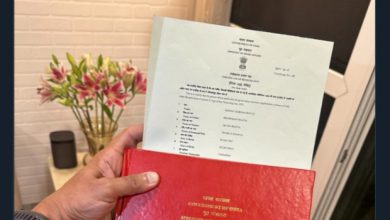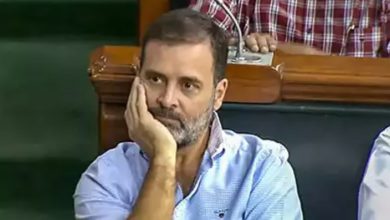Narendra Modi’s defence on economy: PM must take responsibility for clearing GST, demonetisation mess

Prime Minister’s Narendra Modi’s spirited defence against critics of demonetisation and GST during his Gujarat speech on Sunday and his assertion that economy is on the right track signals that the government is as-yet unwilling to undergo an objective assessment of its two big economic moves — GST and demonetisation.
Modi would have emerged an even stronger leader if he showed the political maturity to admit the flaws in the GST and demonetisation episodes. This was missing all through his speech. Instead, he continued to discard his critics. The prime minister seemed to suggest that all was well in the economy and argued that the hard steps (note ban and GST) taken have put the economy on a stronger track.
Is that really the case? As far as GST goes, the government doesn’t seem to have a clear plan yet as far as the course of GST implementation is concerned. It seems to issue statements and tweak rules on the go — some of which are in a drastic manner that could further disrupt business activities of small companies that are already feeling the heat of disruptions. Just the other day, in an interview to PTI, Revenue Secretary Hasmukh Adhia said the government is planning a complete overhaul of the tax rates to reduce the burden on small and medium businesses.
It might take a year for the GST process to stabilise, Adhia said. Should a complete overhauling of rates, as Adhia said, take place it will be back to the beginning for small businesses that constitute a large number of businesses in the country. These firms will have to adjust their pricing and business processes accordingly. The problem is that unlike big companies, these firms lack the financial muscle and clout to adjust to big systemic changes. For sure, low rates will eventually help these businesses, but Adhia’s statement will immediately trigger another wave of uncertainty for these companies on future rules.
If this situation continues for another year, the damage will be significant. But, an even bigger reason for the government to worry is the increasing number of cases of lack of compliance in GST filings. According to the latest government data, less than half those assessed filed summary returns under GST for September, for which the deadline was 20 October, Business Standard reported. That constitutes around 3.94 million of the total eight million assessed, the report said. Is this only because of high tax rates? That is unlikely.
One major reason could be the high compliance cost and processes to which very small companies cannot attend. Why couldn’t the government visualise this scenario in advance? Right now, there are serious compliance issues facing small traders, besides an uncertainty in rules pertaining to rates. The brief point here is that the government and the GST council should have come with a well thought-out rate-structure instead of talking about “overhauling” the structure itself just after three months since the GST rollout. Also, it is critical to bring in policy consistency and offer proper guidance to the market on GST rules. Remember, GST disruptions were among the major elements that dragged down the GDP rate in the June quarter. In this backdrop, there is merit in criticisms on its implementation. Modi, so far, has passed the blame to the Congress party for GST woes instead of admitting the problems in implementation.
The second issue in Modi’s defence was demonetisation. Here again, beyond the political rhetoric, there isn’t much to show as tangible gains of the painful exercise done by the government a year ago. The much-discussed black money hunt still remains a work in progress with no major results so far. The claim Modi repeats during his rallies — about Rs three lakh crore in black money that was been identified after the note ban — doesn’t hold much water till the time the taxman lays his hands on the illicit wealth, and the figures are read out in Parliament. Despite government claims, there are doubts on the impact of demonetisation on terror and corruption.
The growth in digital transactions — the last added objective of note ban — showed a spike in the immediate months after the note ban but the growth rate returned to pre-demonetisation levels in the subsequent months. The informal economy has also been hit hard. As a World Bank report in May points out, while “the macro-economic impact of demonetisation has been relatively limited, the distribution of costs is uneven as the informal economy is likely to have been hit especially hard”.
The first among them is rising unemployment — where the situation has worsened after demonetisation, banking sector problems (high NPAs in state-run banks and weak capital base), no real progress in land and labour reform and disturbingly low private investment activity on the ground. If these issues aren’t addressed with a sense of urgency, the growth trajectory can be impacted. It would be a self-destructive exercise if the Modi government continues to ignore these warnings from critics for political reasons. Modi will only strengthen his 2019 poll prospects if he owns up to the mistakes of his policy moves and promise corrections, instead of living in denial.







